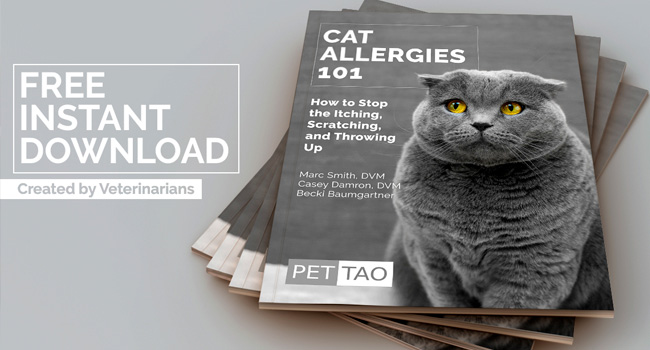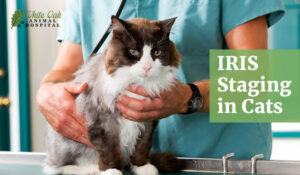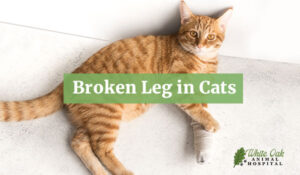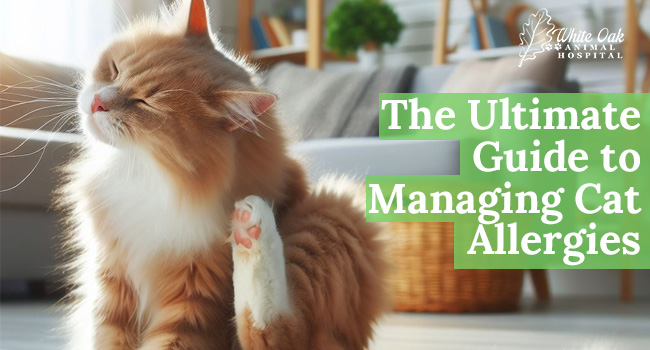
Cat allergies present a common challenge for both felines and their human companions. Understanding the prevalence and impact of these allergies is crucial for pet owners. Moreover, exploring natural solutions for managing cat allergies is essential to ensure the well-being of both pets and their owners. Pet owners can better navigate this widespread issue by recognizing the significance of addressing cat allergies and seeking effective management strategies. Embracing natural solutions benefits the health of cats and fosters a harmonious relationship between pets and their owners, ultimately contributing to a happier and healthier living environment for all involved.
Understanding Cat Allergies
Cat allergies in felines stem from various common allergens found in their environment. These allergens include pollen, dust mites, certain foods, and even flea saliva. Symptoms of cat allergies typically manifest in various ways, such as itching, skin irritation, sneezing, watery eyes, and respiratory issues.
Certain cat breeds, such as Siamese, Burmese, and Devon Rex, are more prone to allergies due to genetic predispositions. Understanding these factors is crucial for pet owners in recognizing and managing allergies effectively in their feline companions.
By being aware of the common allergens, recognizing typical symptoms, and understanding breed predispositions, pet owners can take proactive steps to minimize their cat’s exposure to allergens and provide necessary care to alleviate allergic reactions.
Identifying Triggers
When it comes to cat allergies, identifying triggers is paramount for pet owners. Various factors can spark allergic reactions in cats, ranging from environmental elements like pollen and dust to specific foods or flea bites. Understanding these triggers enables pet owners to create a safer environment for their feline companions.
 Additionally, environmental factors such as changes in weather or exposure to certain substances can exacerbate cat allergic symptoms. Distinguishing between allergies and other health issues in cats can be challenging, but paying attention to symptoms like itching, sneezing, and respiratory problems can help differentiate between the two.
Additionally, environmental factors such as changes in weather or exposure to certain substances can exacerbate cat allergic symptoms. Distinguishing between allergies and other health issues in cats can be challenging, but paying attention to symptoms like itching, sneezing, and respiratory problems can help differentiate between the two.
By being vigilant and aware of potential triggers, pet owners can take proactive measures to minimize their cat’s exposure to allergens and provide appropriate care when needed.
GET “CAT ALLERGIES 101” FOR FREE
5 Natural Solutions Unveiled
Addressing cat allergies through natural solutions is crucial for pet owners seeking effective and sustainable management options. By incorporating holistic approaches, pet owners can alleviate allergic symptoms in their feline companions while promoting overall well-being. Each approach targets different aspects of cat allergies, providing a comprehensive approach to symptom relief and long-term management.
Embracing natural solutions minimizes reliance on medications and fosters a healthier lifestyle for cats. Pet owners must explore these natural options and tailor them to suit their cat’s needs, ensuring a comfortable and allergy-free environment for their beloved feline friends.
Environmental Modifications
Creating an allergen-free environment for cats is vital for managing cat allergies effectively. Simple modifications in the home can significantly reduce allergen exposure and alleviate symptoms in allergic cats. Regular cleaning, including vacuuming carpets, dusting surfaces, and washing bedding, helps remove allergens like dust mites and pollen.
Additionally, minimizing exposure to common allergens such as cigarette smoke, perfumes, and household chemicals can improve air quality and reduce cat allergic reactions. Simple adjustments, like using hypoallergenic bedding and air purifiers, can also create a healthier living space for cats.
By implementing these environmental modifications, pet owners can create a safer and more comfortable environment for their allergic feline companions, promoting their well-being and enhancing their quality of life.
Dietary Adjustments
 In managing cat allergies, dietary adjustments significantly minimize allergic reactions and promote overall health in cats. Hypoallergenic diets, formulated to contain limited ingredients and exclude common allergens like grains and specific proteins, can help reduce allergic responses in sensitive cats.
In managing cat allergies, dietary adjustments significantly minimize allergic reactions and promote overall health in cats. Hypoallergenic diets, formulated to contain limited ingredients and exclude common allergens like grains and specific proteins, can help reduce allergic responses in sensitive cats.
These diets aim to provide nutrition while minimizing the risk of triggering allergic reactions. Additionally, incorporating natural supplements such as omega-3 fatty acids and probiotics into a cat’s diet may further support immune function and reduce allergic symptoms.
Pet owners need to consult with their veterinarian before making any dietary changes for their allergic cats. By exploring hypoallergenic diets and natural supplements, pet owners can provide their feline companions with the nourishment they need while minimizing the risk of allergic reactions, ultimately improving their quality of life.
Herbal Remedies
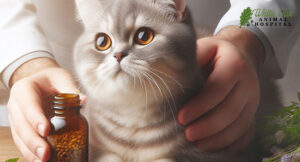 In managing cat allergies, herbal remedies offer a natural approach to alleviating symptoms and promoting well-being in allergic cats. Several herbs are known for their anti-inflammatory and antihistamine properties, which can help reduce allergic reactions and relieve symptoms such as itching and inflammation.
In managing cat allergies, herbal remedies offer a natural approach to alleviating symptoms and promoting well-being in allergic cats. Several herbs are known for their anti-inflammatory and antihistamine properties, which can help reduce allergic reactions and relieve symptoms such as itching and inflammation.
Common herbs used in cat allergy management include chamomile, nettle, and licorice root. However, pet owners need to exercise caution when using herbal treatments in cats, as not all herbs are safe for feline consumption.
Consulting with a veterinarian experienced in herbal medicine can provide valuable guidance on selecting appropriate herbal remedies and ensuring their safe use in allergic cats. By incorporating herbal remedies into their cat’s care regimen under professional guidance, pet owners can explore natural alternatives for managing cat allergies and promoting their cat’s health and comfort.
Stress Management
When addressing cat allergies, managing stress in feline companions can effectively minimize allergic reactions. Stress has been linked to exacerbating allergic symptoms in cats, making it essential for pet owners to understand and address their cat’s stressors.
Techniques for reducing stress and promoting relaxation in cats include providing a calm and predictable environment, offering enrichment activities, and creating safe spaces where cats can retreat when feeling overwhelmed.
Additionally, regular play sessions and interactive toys can help alleviate stress and provide mental stimulation for cats. By implementing stress management techniques tailored to their cat’s needs, pet owners can create a supportive environment that reduces the likelihood of allergic reactions and promotes their cat’s overall well-being and comfort.
Grooming Practices
 In addressing cat allergies, implementing proper grooming practices is paramount. Regular grooming is crucial in managing cat allergies by reducing allergens on the cat’s fur and skin. Pet owners can employ various techniques and tools to ensure effective grooming. Brushing the cat’s fur frequently helps remove loose hair, dander, and other allergens.
In addressing cat allergies, implementing proper grooming practices is paramount. Regular grooming is crucial in managing cat allergies by reducing allergens on the cat’s fur and skin. Pet owners can employ various techniques and tools to ensure effective grooming. Brushing the cat’s fur frequently helps remove loose hair, dander, and other allergens.
Additionally, bathing the cat with hypoallergenic shampoos can further minimize allergen buildup. Choosing grooming products specifically formulated for cats is essential to avoid skin irritation and adverse reactions. Furthermore, maintaining a clean environment, including regular vacuuming of carpets and upholstery, complements grooming efforts in reducing allergen exposure.
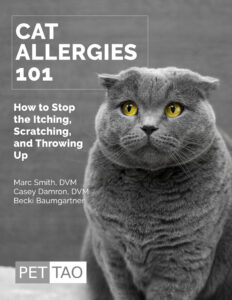 By incorporating consistent grooming practices into their cat’s care routine, pet owners can significantly mitigate allergic reactions and promote a healthier and more comfortable living environment for their cat and themselves.
By incorporating consistent grooming practices into their cat’s care routine, pet owners can significantly mitigate allergic reactions and promote a healthier and more comfortable living environment for their cat and themselves.
Discover valuable insights and practical solutions for managing cat allergies with our free eBook, co-authored by Dr. Casey Damron from White Oak Animal Hospital. This comprehensive guide offers easy-to-implement strategies to help your cat feel better at home. The eBook is written by holistic TCVM veterinarians and provides a wealth of information on addressing cat allergies naturally. Don’t miss this limited-time opportunity to access essential tips and techniques for free! Get your copy today and empower yourself with the knowledge to support your cat’s health and well-being.
GET “CAT ALLERGIES 101” FOR FREE
For comprehensive care and innovative solutions for managing cat allergies, consider visiting White Oak Animal Hospital. With over 28 years of experience and a focus on integrative options, including TCVM telemedicine consultations, we offer unparalleled expertise in addressing your pet’s health needs. Explore our services by taking the next step in supporting your cat’s well-being. For more information, download our eBook from the store today and discover how we can assist you in providing the best care for your furry friend.
Frequently Asked Questions
Are cat allergies common?
Yes, cat allergies are pretty common among felines. Many cats experience allergic reactions to various environmental factors, including pollen, dust, mold, and certain foods. These allergies can manifest in different ways, such as skin irritations, respiratory issues, and digestive problems.
Are cat allergies dangerous?
While cat allergies themselves may not be life-threatening, they can cause discomfort and potentially lead to complications if left untreated. Severe allergic reactions in cats may result in respiratory distress, skin infections, or even anaphylaxis in rare cases. Monitoring your cat’s symptoms and seeking veterinary care if you suspect they are experiencing allergic reactions is essential.
Can cat allergies be cured?
While there is no definitive cure for cat allergies, various management strategies can help alleviate symptoms and improve your cat’s quality of life. These may include environmental modifications, dietary adjustments, and medication. Working closely with your veterinarian is crucial to develop a tailored treatment plan for your cat’s specific needs.
GET “CAT ALLERGIES 101” FOR FREE
Related Posts
-
Get Cat Back Spasm Relief With Natural Herbal Remedies
Is your pet suffering from cat back spasms? Signs of feline back spasms include: Difficulty…
-
Cat Liver Problems and Herbal Solutions
Cat liver problems are extremely common. Firstly, the liver is important for many bodily functions.…
-
Fix Cat Nervous System Problems With Natural Herbs
Does your pet suffer from these cat nervous system problems? occasional neck and back discomfort…
-
Why Try All Natural Epakitin For Cat Kidney Disease?
Cat kidney disease is a common ailment in older cats. For example, common causes of…

